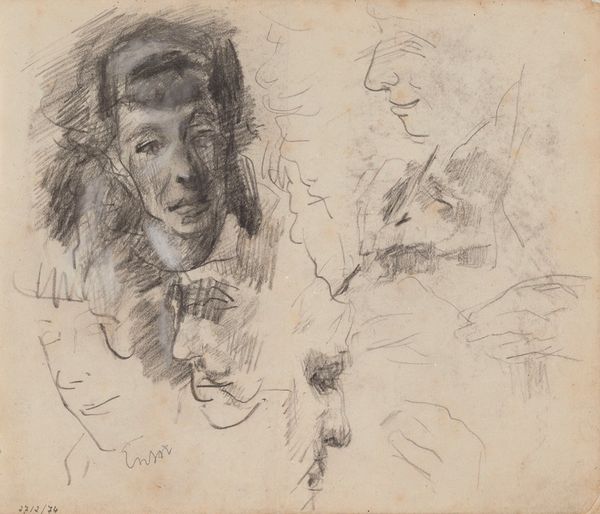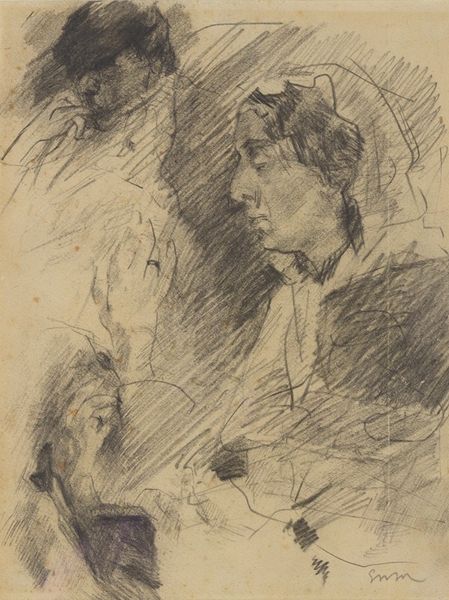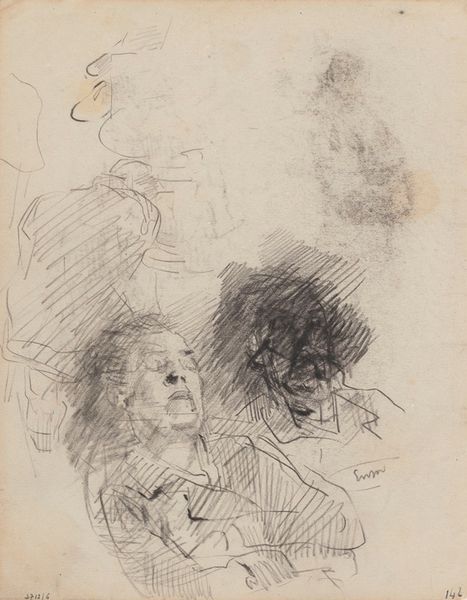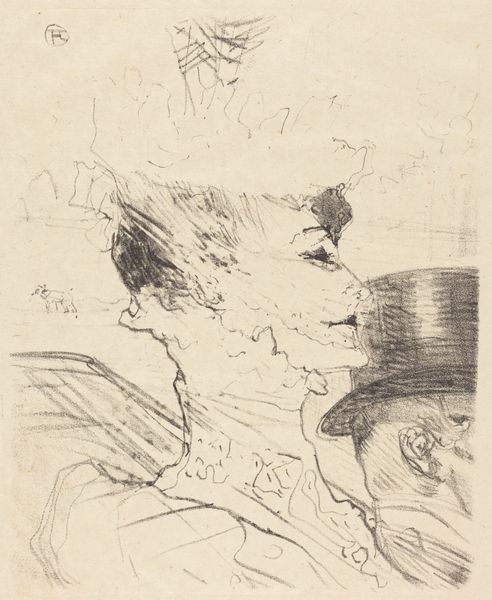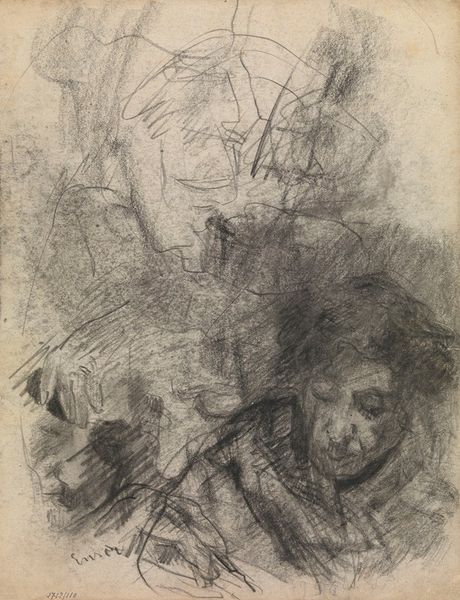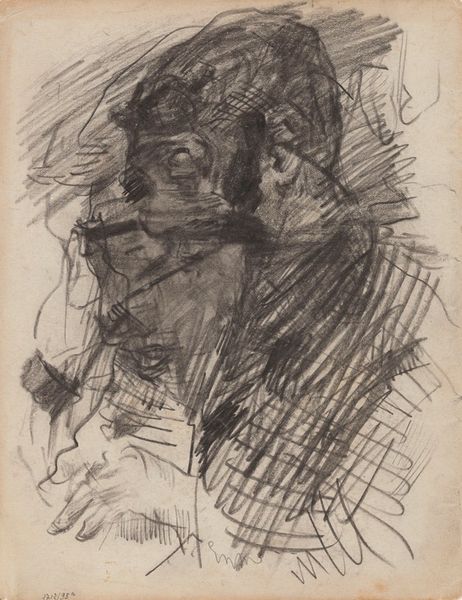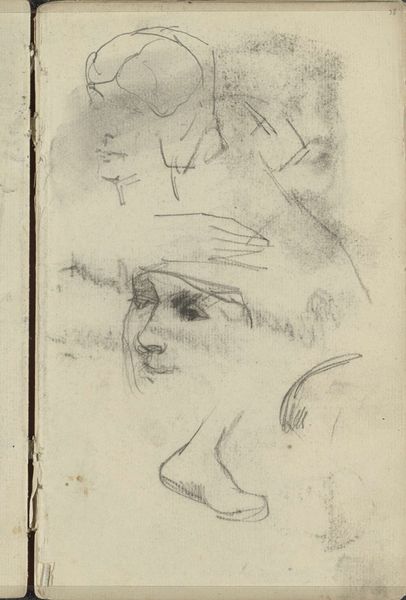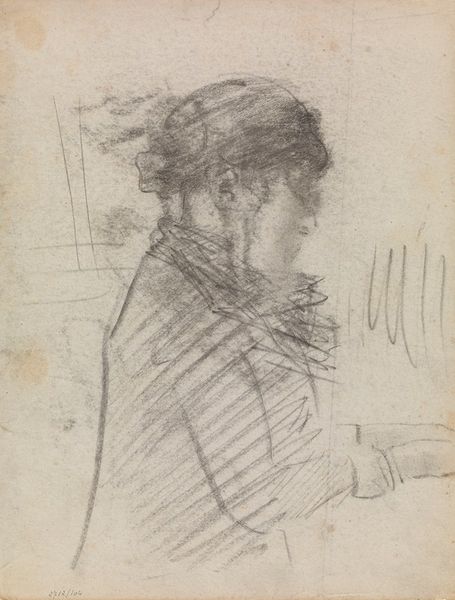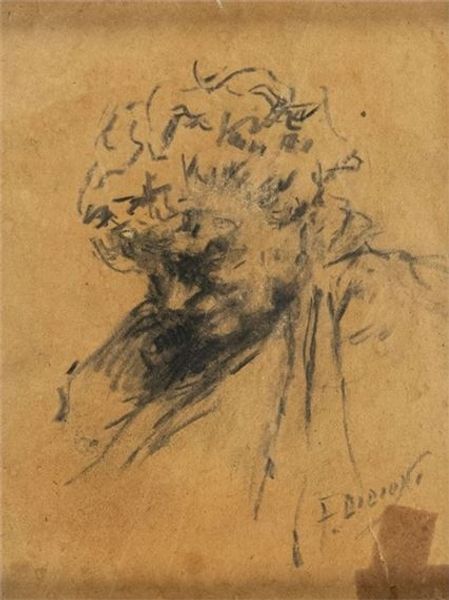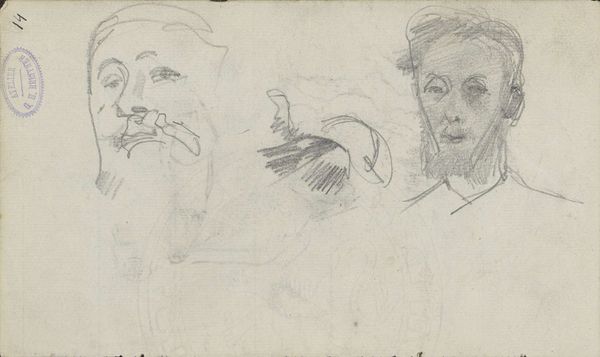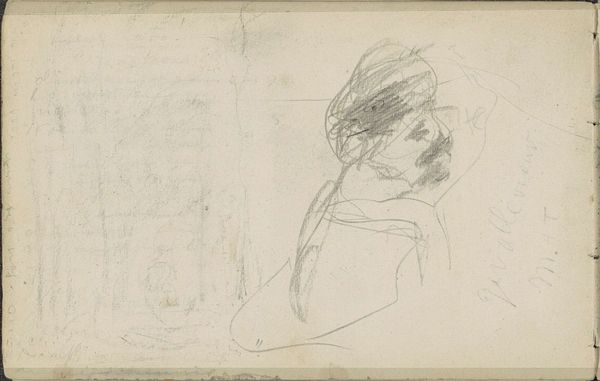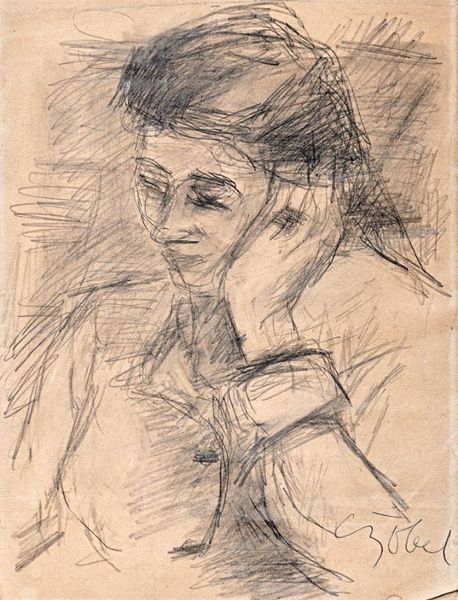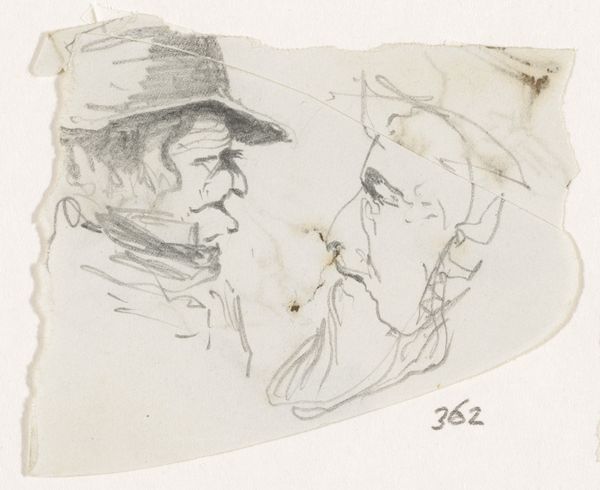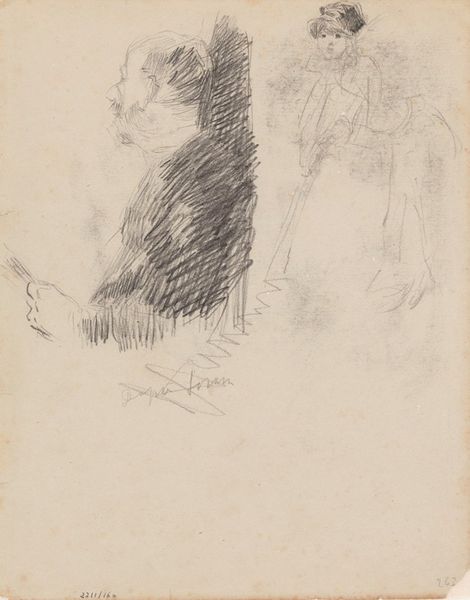
drawing, pencil
#
portrait
#
drawing
#
amateur sketch
#
light pencil work
#
self-portrait
#
impressionism
#
pencil sketch
#
incomplete sketchy
#
personal sketchbook
#
idea generation sketch
#
sketchwork
#
detailed observational sketch
#
pencil
#
sketchbook drawing
#
realism
#
initial sketch
Copyright: Public Domain: Artvee
Editor: Here we have James Ensor's "Ensor’s Mother," a pencil drawing likely created between 1880 and 1883. It’s really just a sketch, seemingly unfinished, yet there's something quite poignant about it. The figure's gaze is averted, she appears lost in thought, perhaps even melancholy. What’s your take on it? Curator: Well, the sketch is undeniably intimate. Think about Ensor's context. He spent much of his life in his mother's souvenir shop in Ostend. That shop, brimming with masks and trinkets catering to tourists, deeply influenced his art. Editor: Influenced how, exactly? Curator: These close-quarters interactions undoubtedly impacted his worldview, his understanding of representation and performance. A souvenir shop is, after all, a space of constant display and artifice. How do you think this intimate sketch, likely made in the domestic space of their shop, sits alongside his later, more deliberately outrageous work with masks? Editor: That's an interesting question. This portrait feels so...genuine, in comparison. Almost like a yearning for a truth behind all the performativity of the souvenir shop, or his own later art. Curator: Precisely. This drawing presents an almost opposing sentiment. Is it a rebellion against, or an escape from, the theatricality that would come to define so much of his production later in life? Was he trying to capture something authentic? Editor: So, even this seemingly simple drawing speaks volumes about Ensor's evolving artistic identity, his relationship to his family, and to the changing social landscape of his time. Curator: Indeed. It reveals an important facet of Ensor, the public persona and the intimate reality intertwining to create a really compelling narrative. Thanks, I learned a lot discussing this with you! Editor: Me too! It really makes you consider the complex interplay between art, life, and social forces.
Comments
No comments
Be the first to comment and join the conversation on the ultimate creative platform.
